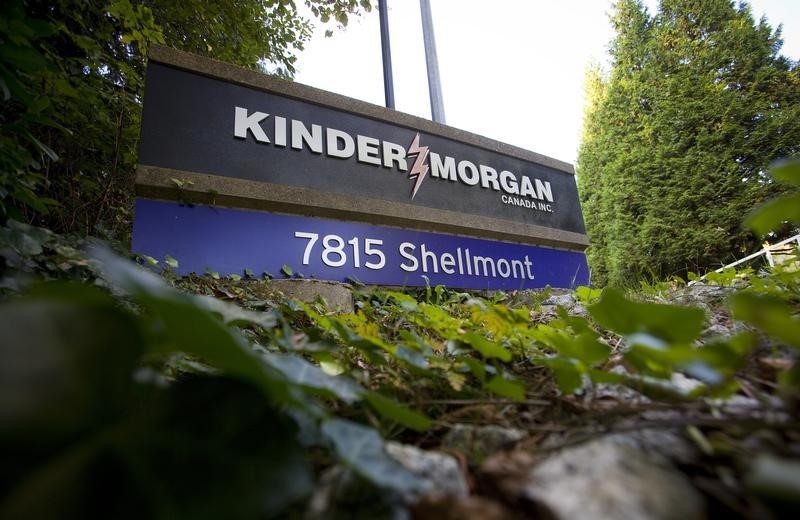By Kristen Hays
HOUSTON (Reuters) - Leading U.S. pipeline Kinder Morgan Inc (N:KMI) said on Wednesday it will enter North Dakota's Bakken shale with a $3 billion acquisition of Hiland Partners, a pipeline and logistics company founded by Continental Resources (N:CLR) Chief Executive Officer Harold Hamm.
The deal includes acreage in the Bakken's top producing counties from which Kinder expects substantial oil output despite crude prices
"The Bakken is the one producing basin in which Kinder Morgan doesn't have a large presence," Chief Executive Rich Kinder told analysts on Wednesday. "We are in the Tier 1 sweet spot of the Bakken. Otherwise we wouldn't have done the deal."
The company also announced that Kinder, co-founder of the company, will step down as chief executive in June in a long-expected move. Both announcements came with the company's release of quarterly results that included net income of $566 million, down from $704 in the same period of 2013.
Hiland Partners operates oil pipelines and natural gas processing systems primarily in the Bakken shale in North Dakota and Montana. Hiland's customers include Continental and Hess Corp (N:HES).
The deal is slated to close during the first quarter of this year. The $3 billion includes assumption of debt at a time when falling oil prices have pressured oil producers such as Continental.
Hiland's assets include the new Double H 84,000 barrels-per-day pipeline that will move Bakken crude from North Dakota to Tallgrass Energy Partners' (N:TEP) Pony Express pipeline in Wyoming. From there, Bakken flows will move to the U.S. crude futures hub in Cushing, Oklahoma via the Pony Express.
The pipeline is expected to start up by the end of January and expand to 108,000 bpd in a year.
CONDENSATE
Kinder Morgan also said the startup of the first phase of its $382 million condensate processing facility at the Houston Ship Channel, which would turn ultra-light crude oil into refined products, has been delayed to March from this month because of vendor delays and bad weather. The startup has been delayed twice before, also on vendor delays.

The second phase remains on schedule for startup this summer.